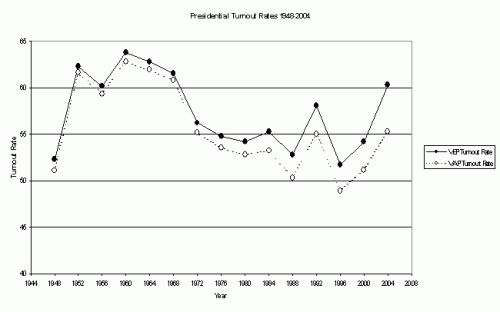that which is common to the greatest number has the least care bestowed upon it.
Aristotle
Continuing our conversation about the US system of education and the No Child Left Behind Act: Does the America system of education suffer from the Tragedy of the Commons? Furthermore, are we re-segregating into micro-segments in the long tail, becoming a divided society lacking common concerns? A couple observations that support this pessimistic view:
- A bridge falls down because no one wants to pay more in taxes to support our ailing infrastructure
- Karl Rove leaves a legacy of divisive politics that tear down (Swift Boat) candidates instead of electing them
Gregory Rodriguez writes in the Los Angeles Times that people in the most diverse areas are the most likely to withdraw — even from those with whom they have much in common. For instance, interracial trust is relatively high in homogenous South Dakota and relatively low in wildly diverse Los Angeles. But it’s not just people from other races we don’t trust.
It turns out that in the most-diverse places in the country, Americans tend to distrust everyone, those who do look like them and those who don’t. Diversity, therefore, does not result in increased conflict or increased accommodation, but in good old-fashioned anomie and social isolation.
Rodriguez continues, “we may indeed find some sense of togetherness and common purpose in a truly broad, overarching identity called American. Maybe once we achieve that, we’ll volunteer more, vote more and be more willing to pay to fix our bridges.”
On a separate but related note, I checked on voter turnout and it’s not as bad as I thought. The United States Elections Project writes: Statistics on voter turnout presented here show that the much-lamented decline in voter participation is an artifact of the way in which it is measured. The most typical way to calculate the turnout rate is to divide the number of votes by what is called the “voting-age population” which consists of everyone age 18 and older residing in the United States. This includes persons ineligible to vote, mainly non-citizens and ineligible felons, and excludes overseas eligible voters. When turnout rates are calculated for those eligible to vote, a new picture of turnout emerges, which exhibits no decline since 1972.
Presidential Turnout Rates for Voting-Age Population (VAP) and Eligible Population (VEP)

I think Rich meant to post this here.
Click to access diversity_rip.pdf
A couple of good excerpts from the editorial above:
“Robert Putnam, author or “Bowling Alone” announced the decline of communal-mindedness amid the rise of home-alone couch potatoes, has completed a mammoth study of th eeffects of ethnic diversity on communities. His researchers did 30,000 interviews in 41 US communities. Short version: People in ethnically diverse settings don’t want to have much of anything to do with each other.”
Hunkering Down
“Inhabitants of diverse communities tend to withdraw from collective life, to distrust their neighbors, regardless of the color of their skin, to withdraw even from close friends, to expect the worst from the community and its leaders, to volunteer less, give less to charity, and work on community projects less often, to register to vote less, to agitate for social reform more, but have less faith that they actually make a difference, and to huddle unhappily in front of the television.”
Skilled readers will already have guessed who is thrilled with the results: Pat Buchannan. He wants a 10 year time out on immigration.
http://www.ksg.harvard.edu/saguaro/
Pat Buchannan? Great, remind me to vote for him come November 2008! Oooh that’s right… he has finally given up running because nobody voted for him in the last 3 elections. Sounds like the republican I was debating a few weeks who suggested that we make like Chinese and build a wall… that working great in the middle ages but something suggests that in the day of motorized planes and boats we still won’t keep illegal aliens out of our country.
As for diversity, perhaps we should ban all organized religions? That way we cannot find mutual interest in our segregated churches – Catholics vs. Protestants vs. Baptists? Or media we should ban organized media – for intensifying our FEAR of everything out there especially each other. Or maybe we should just hold the threat warning at RED and get the duct tape and plastic sheeting out to seal ourselves off from all foreign threats?
Or maybe yet… we need a quick dose of Web 2.0 technology to make us hyperlocal… that way we digitally be one with our community. Take a liesurely read of July’s issue of Wired and some great sci-fi descriptions of our hyperlocal world. Some of the most interesting stuff I’ve read in a long while.
Interesting video on the Swedish model:
http://video.nytimes.com/video/playlist/opinion/op-ed/1194833176718/index.html#1194838660912